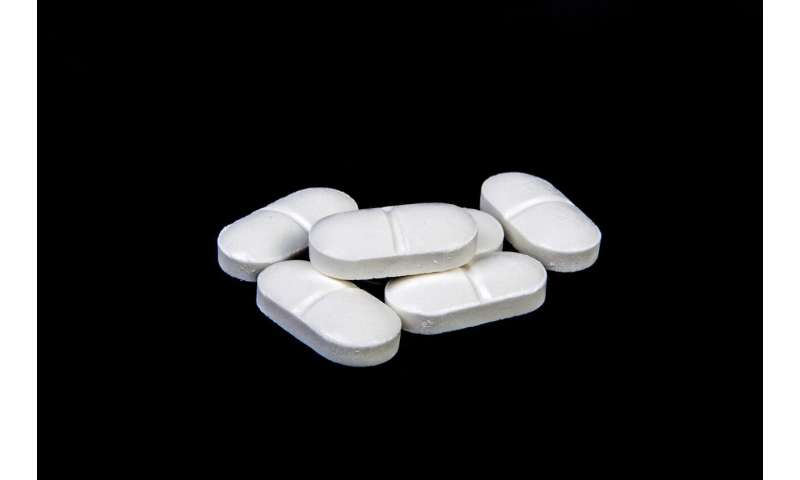

A regular dose of aspirin to reduce the risk of inherited bowel cancer lasts at least 10 years after stopping treatment, research has revealed.
The international trial—known as CAPP2—involved patients with Lynch syndrome from around the world and revealed that two aspirins a day, for an average of two and a half years, reduced the rate of bowel cancer by half.
The study, led by experts at the Universities of Newcastle and Leeds, UK, published in The Lancet today, is a planned double blind 10 year follow-up, supplemented in more than half of recruits with comprehensive national cancer registry data for up to 20 years.
Supports national guidance
The findings of the study further strengthens the National Institute for Health and Care Excellence (NICE) recommendation on taking daily aspirin for those at high risk and supports wider use of aspirin to prevent cancer.
Based on the preliminary five year data from the CAPP2 trial, NICE recommended that aspirin should be offered for the prevention of bowel cancer in adults with Lynch syndrome.
Professor Sir John Burn, from Newcastle University and Newcastle Hospitals NHS Foundation Trust, who led the research, said the new findings further support this important guidance.
He said: “I had an idea 30 years ago that people with a genetic predisposition to colon cancer could help us to test whether aspirin really could reduce the risk of cancer.
“Patients with Lynch syndrome are high risk and this offered statistical power to use cancer as an endpoint—they are like the canaries in the mine who warned the miners that there was gas.
“It took a long time to start the trial and to recruit enough people in 16 countries, but this study has finally given us an answer.
“Two aspirins a day for a couple of years gives protection that lasts more than 10 years and the statistical analysis has become much stronger with time.
“For people at high cancer risk, the benefits are clear—aspirin works. Our new international trial, CaPP3, will see if smaller doses work just as well.”
Findings showed that when all original recruits were included in the study, those on aspirin had 42% fewer colon cancers. Among those who took the aspirin for a full two years, there were 50% fewer colon cancers.
The study involved 861 patients with Lynch syndrome, which affects about one in 200 people in the population. These people have a genetic problem with DNA repair, making them at much higher risk of cancers such as bowel and womb.
A group of 427 were randomised to aspirin continuously for two years and 434 were allocated to a placebo and then they were all followed for 10 years. Out of those given two aspirins each day (600mg) there were 18 fewer colon cancers, representing a drop of 42.6%.
When all 163 Lynch syndrome cancers are included in the analysis—such as cancer of the endometrium or womb—there was an overall reduced risk of cancer of 24% in those taking aspirin, or 37% in those who took aspirin for the full two years.
Historic background
Between 1999 and 2005 participants began either taking two aspirins every day for two years or a placebo.
At the end of the treatment stage in 2007 there was no overall difference between those who had taken aspirin and those who had not. However, the research team anticipated a longer term effect and designed the study for continued follow-up.
By 2010 there had been 19 new bowel cancers among those who had received aspirin and 34 among those on placebo. The incidence of cancer among the group who had taken aspirin had halved—and the effect began to be seen five years after patients starting taking the aspirin.
Professor Sir John said: “Aspirin has a major preventative effect on cancer but this doesn’t become apparent until at least four years later. With the help of these dedicated volunteers we have learned something of value to us all.
“Before anyone begins to take aspirin on a regular basis they should consult their doctor first as aspirin is known to bring with it a risk of stomach complaints, including ulcers and bleeding.
“However, if there is a strong family history of cancer then people may want to weigh up the cost and health benefits of taking aspirin for at least two years.”
Source: Read Full Article